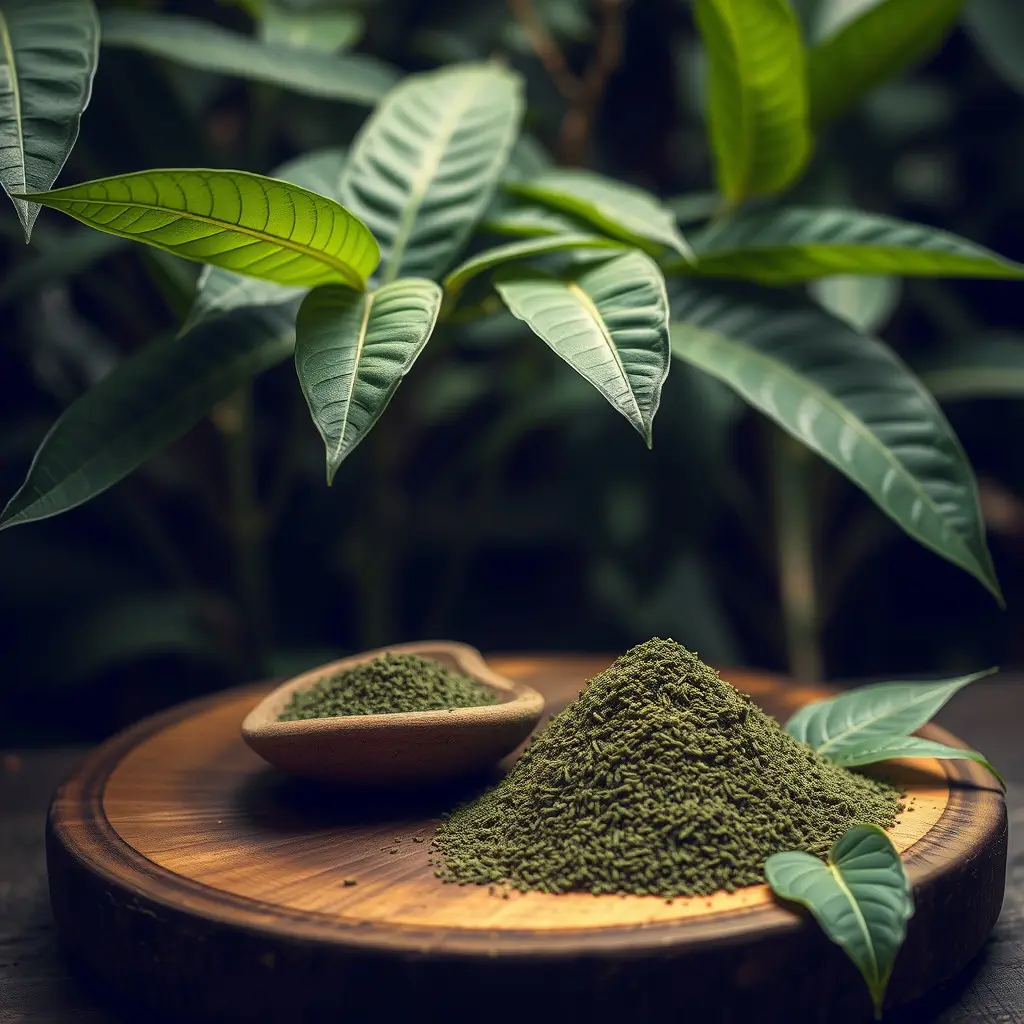In Texas, the legality of kratom is complex and varies by local jurisdiction. While the state itself has not classified kratom as a controlled substance under state law, which means it's generally legal in Texas, some cities like San Antonio have their own restrictions or bans. This creates a patchwork of regulations that can affect how kratom is accessed and used within the state. Kratom contains alkaloids such as mitragynine and 7-hydroxymitragynine, which interact with opioid receptors and may be explored for managing opioid withdrawal symptoms. However, due to its ambiguous legal status at both the federal and local levels, individuals should verify the current legality within their specific Texas city before considering kratom for this purpose. It's crucial for potential users to stay informed about any changes in laws, as they can change frequently and differ significantly from one location to another. Given the potential benefits and risks, along with the ongoing research into its efficacy and safety, it's important to consult with healthcare professionals and legal authorities for guidance on using kratom responsibly.
Kratom, a botanical derived from the leaves of Mitragyna speciosa, has emerged as a topic of interest in the context of opioid withdrawal management. As concerns over the opioid epidemic continue to rise, individuals seeking alternatives to manage withdrawal symptoms are turning to kratom, raising questions about its legality and efficacy, particularly in Texas. This article delves into the scientific basis of kratom’s role in mitigating opioid withdrawal symptoms from a phytochemical standpoint and examines the varying legal landscapes that impact its use. Understanding the nuances of kratom’s status within Texas law is crucial for those navigating the challenges of opioid detoxification and seeking safe and accessible relief options.
- Kratom's Role in Mitigating Opioid Withdrawal Symptoms: A Legal Perspective in Texas
- Understanding Kratom: Phytochemistry and Potential Benefits for Opioid Detoxification
- Navigating the Legal Status of Kratom in Texas: Implications for Opioid Withdrawal Management
Kratom's Role in Mitigating Opioid Withdrawal Symptoms: A Legal Perspective in Texas

In Texas, the legality of kratom has been a subject of debate and legislative action. As of the current understanding, kratom is not explicitly classified as a controlled substance at the state level, which places it in a legal gray area. This ambiguity has led to varying interpretations by law enforcement agencies across the state. From a legal perspective, individuals seeking to use kratom as an aid for opioid withdrawal symptoms must navigate this complex regulatory environment. Kratom’s active compounds, mitragynine and 7-hydroxymitragynine, are believed to interact with the opioid receptors in the brain, potentially offering relief from withdrawal symptoms associated with opioid cessation. The lack of clear state legislation on kratom use has necessitated cautious consideration by both medical professionals and consumers in Texas. It is crucial for individuals considering kratom as an alternative treatment to stay informed about the evolving legal status of the substance, as well as any new research that may influence its acceptability within medical communities and among policymakers. Users should also be aware of local ordinances, as some cities or counties in Texas may have enacted their own regulations regarding kratom sales and possession.
Understanding Kratom: Phytochemistry and Potential Benefits for Opioid Detoxification

Kratom, a tropical evergreen tree native to Southeast Asia, has garnered attention for its potential role in managing opioid withdrawal symptoms. The plant’s leaves contain over 40 phytochemicals, with the primary active alkaloids being mitragynine and 7-hydroxymitragynine. These compounds interact with the body’s opioid receptors, which can influence both opioid-like effects and withdrawal symptoms. The legal status of kratom varies across different regions in the United States, including Texas. As of the knowledge cutoff date, the state of Texas has specific regulations regarding kratom, with some cities imposing their own restrictions or bans. It’s crucial for individuals considering kratom as a tool for opioid detoxification to first understand its legal standing in their area.
For those exploring alternative methods for opioid withdrawal management, kratom may offer potential benefits due to its alkaloid profile that can mimic opioid effects without the same level of addiction risk. This could be particularly advantageous for individuals seeking to mitigate the discomfort associated with opioid cessation. However, the use of kratom should be approached with caution and under medical supervision, as it can have side effects and may interact with other substances. The scientific community is still investigating the efficacy and safety of kratom for opioid withdrawal, and ongoing research aims to clarify its role in treatment protocols. Users in Texas and elsewhere should stay informed about both the legal status and evolving research on kratom to make informed decisions about its use.
Navigating the Legal Status of Kratom in Texas: Implications for Opioid Withdrawal Management

When considering Kratom as a potential aid for opioid withdrawal symptoms, it’s crucial to understand its legal status within the state of Texas. As of the current knowledge cutoff date, Kratom remains in a complex regulatory landscape. At the federal level, the DEA has placed Kratom in the Schedule I category, deeming it a substance with no accepted medical use and a high potential for abuse. However, Texas law treats Kratom differently; it is not explicitly listed as a controlled substance under the Texas Controlled Substances Act, which means that, technically, Kratom is legal in Texas. This distinction has significant implications for individuals seeking alternatives to manage opioid withdrawal symptoms, as they can legally access Kratom within state lines.
However, this does not mean that the use of Kratom is unregulated. Local ordinances may vary, and some cities or counties within Texas have enacted their own regulations or restrictions on Kratom sales and possession. For instance, San Antonio has taken a stance against Kratom by making it a controlled substance within its city limits. Conversely, other municipalities may allow its sale without restriction. The evolving legal status of Kratom in Texas underscores the importance for those affected by opioid withdrawal to stay informed about local laws and regulations. It’s advisable to consult with legal experts or local health authorities to understand the current status of Kratom in specific areas within the state, as legislation can change, potentially affecting access to this substance as a tool for managing withdrawal symptoms.
The exploration of Kratom’s potential as a mitigating agent for opioid withdrawal symptoms, particularly within the context of its legal status in Texas, offers a nuanced perspective on a multifaceted issue. The phytochemistry behind Kratom and its effects on alleviating withdrawal discomfort is a promising area of research for those seeking alternatives to traditional detoxification methods. As this article has highlighted, the legality of Kratom in Texas presents both opportunities and challenges in the management of opioid withdrawal. It is imperative for policymakers and healthcare providers to stay informed on the evolving research and legal landscape surrounding Kratom to best serve those affected by opioid addiction. A clear understanding and appropriate regulation of Kratom could play a significant role in public health strategies aimed at reducing the impact of opioid withdrawal symptoms, while also ensuring patient safety and adherence to the law.






